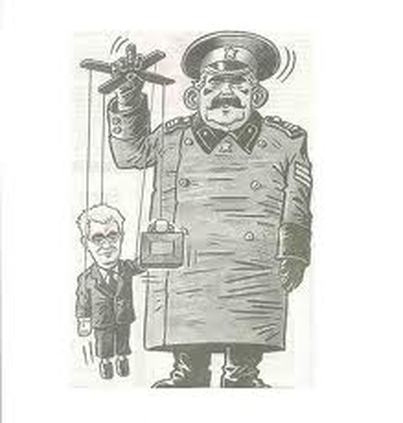| The World Between The Wars |
Command Economy

In a Command economy the government has complete control of production of goods, the prices of goods and raw materials. Now compare that to a market economy, the prices are not controlled by the government, there is this idea that if the government has no control of the prices that it will benefit the economy. While, command economy is the complete opposite, if the government has complete control of the production of goods and what the prices of those goods are then the economy will thrive. Furthermore, Joseph Stalin set up the command economy in Russia in hopes to give his nation some much needed economic stability. He set up this system of collective farming which he had control of all the production of what came out of all the Russian farms, he controlled what materials came out of each farm and set prices to those materials. Ultimately, he achieved his goal of economic stability and there was some economic sense in Russia. Furthermore, In the early 1930’s Adolf Hitler came to power through the Nazi party. Before Hitler was in power, Germany was in a huge depression age, with unemployment over the top, prices of everyday goods were so out of control and Germany was in a huge State of chaos. Like Stalin, Hitler felt it best that he to set up a command economy. Therefore, out of that he very carefully regulated the prices of every day goods and with other contributing factors the Nazi economy thrived. To sum that up, Its been very rare that command economy was a positive thing. These two examples are the exception to an extent. Even though, the Nazi Economy thrived in the 1930’s it made Hitler’s nation to powerful. So powerful that it angered Foreign countries which was a key contributor to W.W.II in Europe. While, the Soviet economy did thrive, it made the nation too powerful. So powerful that at the end of W.W.II the Cold War emerged and made the soviet union so powerful that it could not handle its power which ultimately led to the crash of the Soviet Union in 1990 and left the country in ruins. finally, command economy looked like the best thing for the Soviet Union and Nazi Germany at the time, even through they did thrive for a period of time it also contributed to there down fall in the end.
Work Cited
"command economy." World History: The Modern Era. ABC-CLIO, 2012. Web. 11 Mar. 2012.
Photo:Stoudt, Jill. "Mrs. Stoudt's Classes." 21 June 2011. Web. 11 Mar. 2012. <http://www.freewebs.com/mrsstoudt/apps/forums/topics/show/4282779>.
Work Cited
"command economy." World History: The Modern Era. ABC-CLIO, 2012. Web. 11 Mar. 2012.
Photo:Stoudt, Jill. "Mrs. Stoudt's Classes." 21 June 2011. Web. 11 Mar. 2012. <http://www.freewebs.com/mrsstoudt/apps/forums/topics/show/4282779>.
